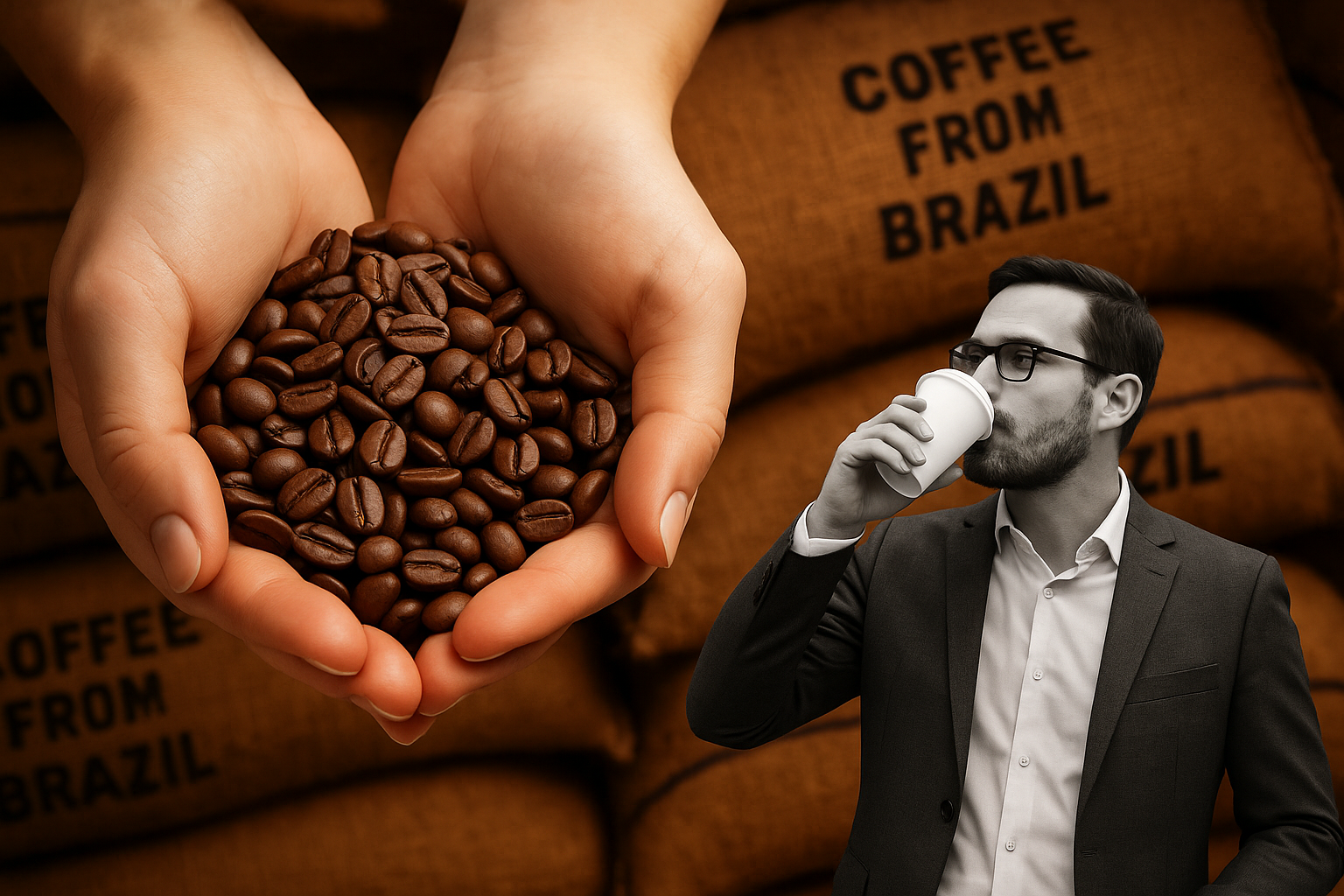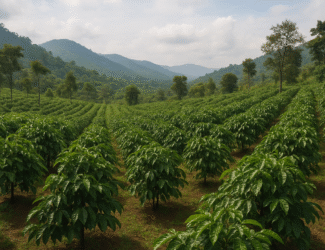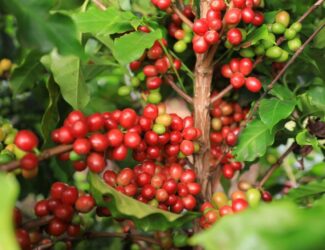
Bad News for Coffee Drinkers: U.S. Tariffs Push Prices to Record Highs
Dubai – Qahwa World
Times are getting tougher for coffee drinkers as tariffs push already record-high prices even higher.
When former U.S. President Donald Trump announced new tariffs on imports in April, many in the industry believed coffee would be spared since the U.S. barely produces it domestically. But by midyear, a 10% duty was imposed on most imported coffee, including shipments from Brazil—the world’s top supplier. In August, those tariffs on Brazil rose sharply to 50%.
For roasters like Chad Seegers of Low Country Coffee Roasters in Charleston, South Carolina, the impact has been immediate. “Raw-bean prices have doubled for us,” he said. Wholesale prices to his customers have risen by 30–40%, while retail prices climbed by about 25%. “Brazilian coffee, which made up 80% of our best-selling blend, is simply not feasible anymore.”
The industry was already struggling before tariffs. According to Fernando Maximiliano of StoneX, global coffee output has been hit repeatedly by droughts, frosts, and extreme weather since 2020, leaving global inventories at just 36–37 million bags in 2024, down from nearly 59 million in 2020. “Persistent supply shocks had already fueled inflation in coffee markets. Tariffs only intensified the strain,” Maximiliano explained.
The data shows the severity: U.S. city prices for 100% ground roast coffee hit $8.87 per pound in August 2025—the highest on record since tracking began in 1980. Futures markets reflect the pressure too. Arabica “C” contracts in New York have surged nearly 20% this year, peaking at $4.29 a pound in February.
Trade flows are already adjusting. ING’s food and agriculture economist Thijs Geijer noted that U.S. imports of Brazilian coffee plunged more than 75% in August compared with a year earlier, while exports from Colombia and Vietnam have remained stable. American buyers are now sourcing from alternative markets with lower tariffs.
Still, the adjustment is costly. Seegers said some family growers from Cameroon and Costa Rica refused to sell to the U.S. altogether rather than deal with tariff rules. Profit margins for his roastery have been cut in half, and he warned: “A $4.50 latte is now $7 in some cafés.”
According to Geijer, much of the tariff-driven cost increase has not yet reached store shelves. With the 50% tariff on Brazilian coffee only taking effect in August, existing inventories are still being used. “Expect the tariff impact to start hitting retailers in the fourth quarter,” he warned.
Starbucks, the world’s largest coffee chain, confirmed in its July earnings call that its hedging strategies delay cost spikes, but said year-over-year increases are expected to peak in the first half of fiscal 2026.
Despite the financial hit, Seegers said his company refuses to compromise on quality: “We chose to absorb most of the cost increases rather than cut corners.” But the stress is mounting. Higher prices are slowing demand, squeezing both roasters and cafés.
With U.S. coffee lovers already paying more than ever before, the worst may still be ahead. “High-tariff coffee hasn’t even fully hit the shelves yet,” Geijer warned. For millions of Americans, their daily cup may soon cost more than they ever imagined.






